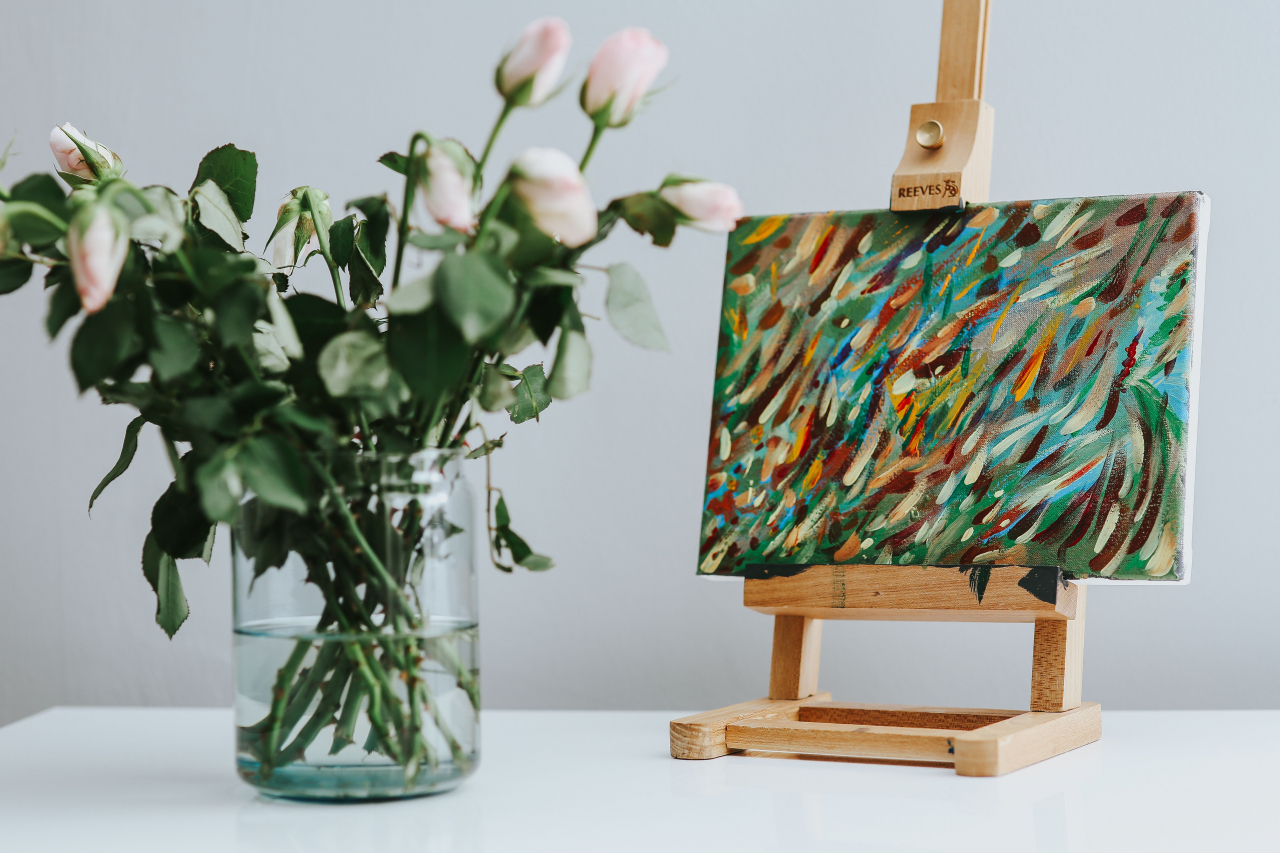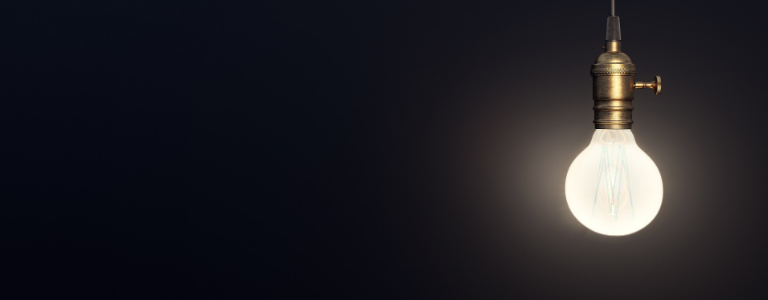- Home
- Think Pieces
- Random
- Myths About Creativity
7 Common Myths About Creativity That We Need to Address
We’ve all been exposed to various myths about creativity at one point or another. Let’s discuss these myths, to discover what’s really true and false.

Creativity is the sweet spice of life.
But things can quickly turn sour when people try to put you in a box, making you feel that you’re not creative enough for one reason or another.
Let’s consider some widespread myths about creativity and why they don’t make much sense.
As we do so, we’ll uncover some key reasonings and reflections that can empower you as you progress on your creative journey.
7 Widespread Myths about Creativity

Here are common myths about creativity, creative people, or how you must go about your creative pursuits...
1. There’s only one type of creative person.
Society generally seems to push the idea that there's only one type of creative person.
You're a graphic designer? - sure you're creative.
A musician? - obviously creative.
Writer? - also creative.
You're a data entry clerk, a programmer, or a surgeon?
Hmm...doesn't quite fit the box.
Or so we are told.
The idea that a creative person has to have a certain kind of occupation is one of the biggest myths about creativity.
Creative people come from all backgrounds, education levels, and walks of life. Moreover, a person's job is not always a reflection of their creative abilities.
You know what else this means?
You can be a creative person even if you can't draw or you don't enjoy making crafts.
That type of art is one form of creative expression, but it's not the only one...
2. Creative thinking doesn’t count.
This brings us to another point, one of my personal favourites.
There is a form of creative expression that often goes unnoticed:
Creative thinking; the power of the mind and the mind alone.
You can be an extremely talented and creative person without ever creating something that others can touch and hold.
Take for example, the art of negotiation.
A skillful negotiator is able to perceive the world in unique ways, use empathy to find common ground with his or her counterpart, connect patterns between thoughts, emotions, and actions, and implement a solution in a stylish, tactful manner.
I don't know about you, but that sounds like creativity to me.
Here are some other examples:
- The ability to draw others out (especially people who are reserved) and engage them in stimulating conversations.
- The ability to organize and manage resources to ensure that a little goes a long way.
- The ability to leverage good timing and other people's knowledge to find out the answers to important questions.
And that's just scratching the surface, we see countless more examples every single day.
3. Creativity is dramatic and obvious.
Another common misconception is that creativity is only defined by Eureka! moments.
Moments like when Isaac Newton saw an apple fall from a tree and discovered the universal force of gravity; or when Dmitri Mendeleev discovered the periodic table of elements in a dream.
If you're waiting for dramatic moments like that for a mysterious lightning bolt of creativity to come upon you, you'll likely be disappointed.
Many times, what appears to be a flash of insight or an overnight success is a process that started a long time before.
When you put your heart and soul into a project, you tend to come in contact with ideas that slowly simmer in your subscious mind before they eventually come to fruition.
The more dedicated you are and the harder you work, the more often this happens.
This truth is reflected in Thomas Eddison's famous adage about creativity and innovation:
"Genius is 1 percent inspiration and 99 percent perspiration."

4. You can't monetize your passions.
A common myth about creativity is that you can't monetize your passions, aka creative people are poor, starving artists.
This couldn't be further from the truth.
The internet abounds with examples of individuals who have turned their creative passions into full-fledged careers and businesses.
For many of these people, the income they've made through their creative pursuits has even surpassed the income they used to make at their day job.
We're talking about people who now make in a month what they used to make in a whole year.
Creativity pays - both in direct and indirect ways.
Even if you can't think of a way to make money from a specific creative skill, you can potentially increase your income by finding creative ways to improve the quality of your work or your efficiency at your job.
5. You shouldn't monetize your passions.
On the other side of the equation, there's the common argument that you shouldn't monetize your passions and creativity.
Personally, I believe this is a matter of personal choice.
- If you want to monetize your passion, go ahead.
- If you want to keep it as a hobby, so be it.
In my opinion, the perfect job is the one that takes the least time - the one that frees you up to enjoy other parts of life.
If you can handle the emotional labour and intensity of monetizing your passion, it can be very rewarding.
But it's also perfectly fine to keep your creative pursuit as something you reserve for your downtime, when you've worked hard all day and you just want to de-stress.
There are success stories on both sides.
The decision is completely up to you.
6. Creativity means creating things from scratch.
The idea of absolute originality is one of the biggest myths about creativity that we need to reject.
People believe that if you borrow ideas from others in any way, shape, or form - then you are a fake and unfit to be called a creative person.
This is a myth that is used to pigeonhole people, to limit their creativity, and to make them feel like they are not good enough.
But here's the thing:
You are allowed to be influenced by others!
You are allowed to gain and give inspiration!
The best artists and inventors in history achieved success by building upon the techniques and knowledge discovered by others.
Sure, the first person who came up with an idea is creative - but so is the person who found a way to improve and enhance that idea, one hundred years later.
It would be quite pretentious to pass off any artistic idea as being completely original.
Even the most remarkable human inventions (e.g. velcro, LED bulbs, Japan's bullet trains) are simply imitations of what God first put in nature.
 Fact: Creative people find ingenious ways to build on concepts that already exist.
Fact: Creative people find ingenious ways to build on concepts that already exist.7. You're either born creative or you're not.
Finally, let's discuss the myth that "you're either born creative or you're not".
This is false, because like any other skill in life, creativity is something that you can develop over time.
That's the whole idea of personal development - expanding your mind and building new skills that you never had before.
Every single person on this planet is born with the capacity to be creative, and your level of creativity isn't fixed at birth.
Creativity is something that needs to be nurtured and encouraged with patience, like a plant.
It's also like a muscle that you build by challenging yourself, taking risks, reading books about creativity, and immersing yourself in projects that break you out of your usual thought patterns.
Many people have way more control over this aspect of their life than they realize.
Final Thoughts
Thanks for reading this post on common myths about creativity. Which of these myths do you hear the most often?
Hopefully our discussion has reminded you of the reasons why these statements are myths, and why you should never be held back by the opinions of others.
We are all creative in our own unique ways, and the more you tap into your own brand of creativity, the more successful you will be.
To your success and abundant creativity,
Roli Edema
Thanks for reading! If you liked this content, share with a friend:
Recent Articles
-
5 Things to Stop Doing If You Want to Feel More Fulfilled
Feb 21, 26 05:35 PM
Are you unintentionally engaging in behaviours that leave you feeling depleted and empty? Here are 5 things to stop doing if you want to feel more fulfilled. -
5 Subtle Habits That Quietly Transform Your Life Over Time
Jan 25, 26 08:21 PM
Progress towards the things that matter isn't usually loud or dramatic. Here are 5 subtle habits that quietly transform your life over time. -
Inner Work with Marcus Lynn | How to Make Change More Realistic
Jan 19, 26 06:24 PM
In this spotlight interview, therapist Marcus Lynn explains how we can begin to see emotions as information and make change more realistic in our lives.
















New! Comments
Have your say about what you just read! Leave me a comment in the box below.